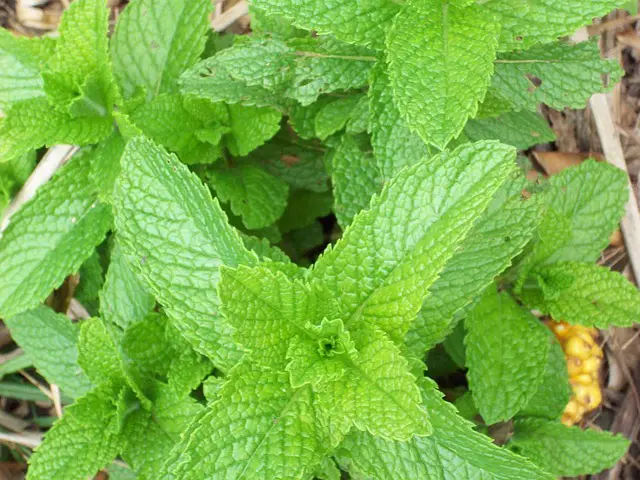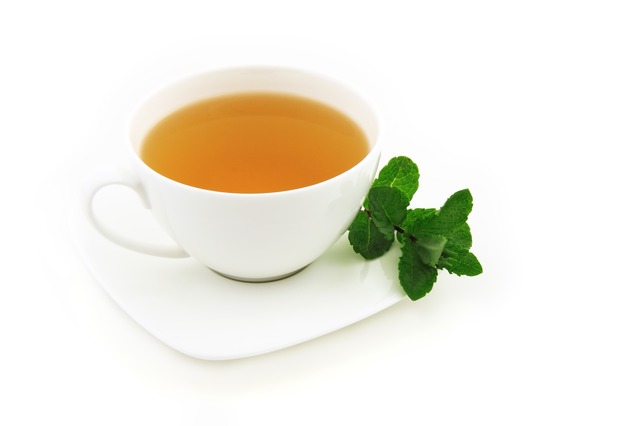Native to certain parts of Europe and the Middle East, the peppermint plant is naturally occurring hybrid of spearmint and watermint which has been used for centuries as a dome remedy.
Peppermint or mint tea can be prepared by steeping the leaves and/or stems of peppermint (Mentha piperita) in water.
Taken hot or cold, the soothing menthol flavored beverage is not only a refreshing way to excite your taste buds; it also offers benefits for your overall health and well being.
Here Are Some Health Benefits Of Peppermint Tea
1. As A Carminative
Drinking Peppermint tea can help in expelling excess gas (flatulence) from the stomach and intestines thus preventing bloating or stomach cramps and aiding bowel movement.
2. As An Analgesic
Because it helps to calm the intestines and the digestive tracts, peppermint tea helps to relieve pain resulting from bloating, stomach cramps and indigestion.
This also makes it effective in providing relief from irritable bowel syndrome (IBS), diarrhea cramps of the bile ducts, bacterial overgrowth of the small intestine and constipation. Peppermint tea can also help in reducing the discomfort associated with migraines.
3. As An Antiemetic
4. As An Antibacterial
5. As An Antispasmodic
6. For Combating Stress
7. Role in Digestion
8. For Oral Health
The antibacterial quality of peppermint tea, coupled with its menthol flavor combats bad breath and helps to keep your mouth clean and fresh.
9. For Weight Loss
Peppermint tea, because of its minty flavor may be helpful in suppressing the appetite, thereby reducing the urge to eat.
This can be quite helpful for people who want to lose weight.

Taking Peppermint Tea with Caution!
While peppermint tea has a lot of health benefits, its intake may lead to some side effects…
» Possible menthol allergy or heartburn may result from drinking peppermint tea. People prone to allergies should consult their doctor before drinking peppermint tea
» Asthma sufferers should avoid taking peppermint tea because it can aggravate the related symptoms
» Peppermint tea may not be suitable for people suffering from gastroesophageal reflux disease or GERD as it cause an up flow of stomach acid into the esophagus and aggravate existing symptoms
» Pregnant women with a history of miscarriages are advised to stay away from peppermint tea while trying to become pregnant or during pregnancy
» Breastfeeding mothers should abstain from drinking peppermint tea as it could be hazardous to the health of infants and growing children
» Consult with your doctor about taking peppermint tea if you are on any over the counter or prescription medication
» In order to avoid overdose and potential side effects, your mug of peppermint tea should contain no more than 1 tablespoon of tea leaves boiled in 150ml of water. Also, limit your consumption to not more than two to three servings per day.
Conclusion
Drink peppermint tea as an alternative to water and you can experience many health benefits as well as a range of exciting flavors.
It smells great, tastes amazing and even freshens your breath!
Researches and references
http://www.ncbi.nlm.nih.gov/pubmed/16767798 peppermint has significant antimicrobial and antiviral activities, strong antioxidant and antitumor actions, and some antiallergenic potential.
http://umm.edu/health/medical/altmed/herb/peppermint
http://en.wikipedia.org/wiki/Peppermint_tea
http://onlinelibrary.wiley.com/doi/10.1111/j.1440-1746.2006.04307.x/abstract
Kline RM, Kline JJ, Di Palma J, Barbero GJ. Enteric-coated, pH-dependent peppermint oil capsules for the treatment of irritable bowel syndrome in children. J Pediatr. 2001;138(1):125-128
Shen YH, Nahas R. Complementary and alternative medicine for treatment of irritable bowel syndrome. Can Fam Physician. 2009 Feb;55(2):143-8.
http://www.ncbi.nlm.nih.gov/pubmed/17091431
http://www.ncbi.nlm.nih.gov/pubmed/12509588
http://www.ncbi.nlm.nih.gov/pubmed/19507027
http://www.sciencedaily.com/releases/2011/03/110301122055.htm
http://www.ncbi.nlm.nih.gov/pmc/articles/PMC3390130/
Leave Feedback: Was this article helpful?

